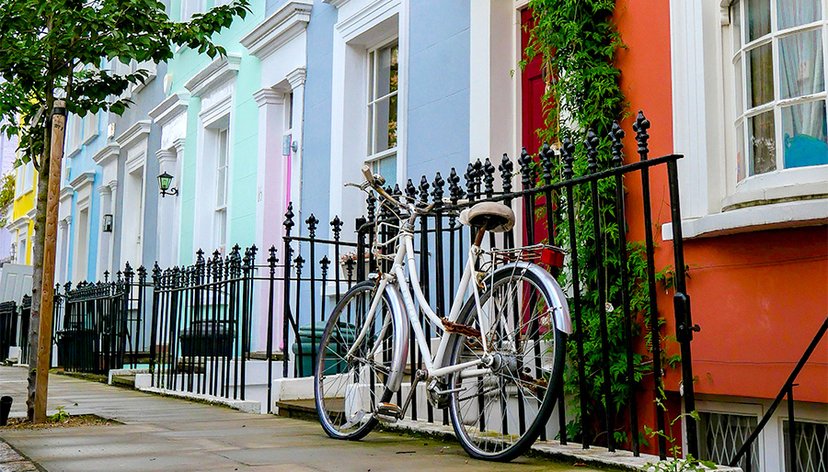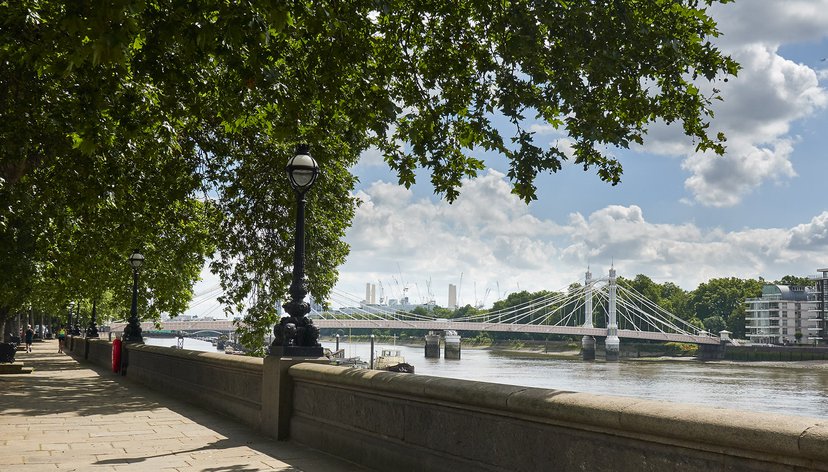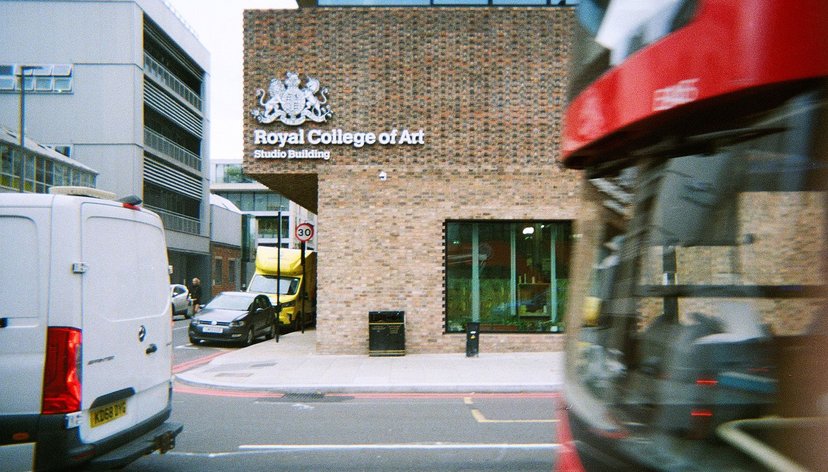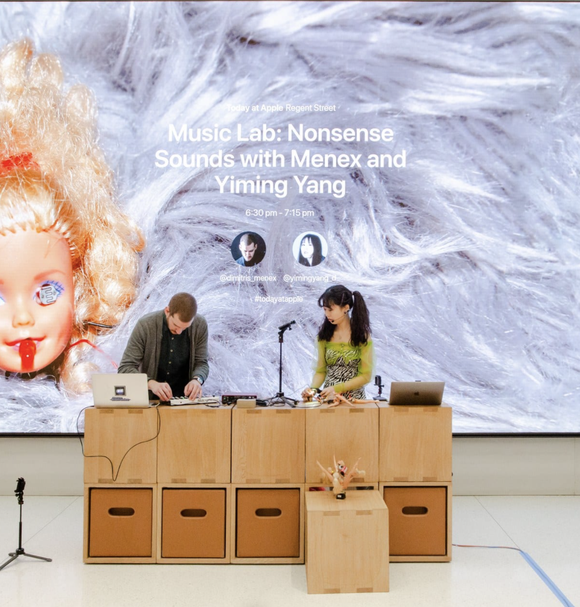Cost of living
Jump to
Studying at the RCA means living in London, one of the most exciting and cosmopolitan cities in the world.
Renowned for its creativity, diversity and cultural offer – there’s no better city to develop your practice in.
Whether you are moving to London from another part of the UK or another country, it’s likely the cost of living will differ from what you are used to at home. Living costs are personal and will depend on your lifestyle choices, but as a student there are many ways to manage and you can take advantage of a range of discounts, including on travel and cultural activities.
This guide provides practical information on costs like housing, utilities and travel as well as how to make the most of London life on a budget. You can also find out more about RCA Financial Assistance Funds and RCA Scholarships.
Help with finances
Financial Assistance Funds
We offer Financial Assistance Funds to help students with financial difficulties. Detailed information on the funds is available for enrolled students to view on the RCA intranet.
Emergency Hardship Fund
This fund provides support for students who have experienced an unforeseen change in circumstance after the start of their programme which has caused financial challenges.
A change of circumstances might include, but is not limited to:
- Experiencing a close personal bereavement
- Being a victim of crime
- A loss of income
- A change in physical or mental health
- A change in living circumstances
Materials Fund
This fund provides support for students on low incomes with course material or project-related travel costs, where purchases would take money away from essential living costs.
For the duration of the 2025/2026 academic year the RCA Materials Fund is wholly supported by the Denise Coates Foundation.
RCASU Cost of Living Fund
In collaboration with the RCA Students’ Union, the College has also launched a Cost of Living Fund in response to the cost of living increase in the UK, providing supermarket vouchers to students in financial need.
RCA Scholarships
Over 300 scholarships will be available for the 2025/26 academic year. These are awarded predominantly on an assessment of financial hardship and social disadvantage. If you are an existing offer holder or thinking of applying to the RCA but you are worried about finances, please visit our RCA Scholarships page to see what financial support is available.
Campus facilities
Cost of living: How the RCA can help
The RCA provides the following facilities on campus:
- Hot water points, fridges and microwaves located near programme studio spaces
- Showers (Stevens Building, Kensington Campus; Dyson Woo Building, Battersea Campus) and bike storage
- Wi-Fi (eduroam)
- Free shuttle bus service between campuses
- Discounted food at campus canteens
- Free period products
Books, equipment and materials
The RCA Library offers access to over 70,000 books on art and design reflecting the full range of activity at the College – if you’re looking for a specific book, always make sure to check the library first to see if you can borrow a copy rather than have to buy one. The Library also has a dedicated space for magazines and journals, with subscriptions to a huge range of art, design, fashion and film periodicals – reading these in the library can save you having to buy magazines or take out your own subscriptions. More information about accessing the Library can be found on the Intranet once you’re registered at the RCA.
Creative software
Key creative software like Adobe Creative Cloud is available free through the RCA and a number of other programmes are available for students at a discounted rate – you’ll be able to find a full list on the Intranet once you register as an RCA student.
College Shops
We also have two College Shops across our campuses – one in Kensington and one in Battersea – where you can buy supplies and materials at affordable prices.
Ways to save on travel
Walking
Walking is an affordable way to explore the city. Many places are closer than you think, and apps like Citymapper provide safe routes, especially in unfamiliar areas or at night.
Off-peak travel
Travelling during off-peak times can help you save money as tube fares are cheaper. Off-peak times are generally 9.30am – 4pm and from 7pm onwards. Check the TfL website for more information.
Buses
Travel by bus in London is cheaper than the tube at just £1.75 per journey. In fact, a day of travelling only by bus will never cost you more than £5.25. You can also transfer to other buses or trams for free within one hour of tapping in for your first journey. Hopping on the bus lets you see more of the city which can help you get your bearings when you first arrive in London – and find more areas to explore!
Student travelcard
A travelcard provides unlimited travel on the tube and buses for a set price. Students can get an additional 30% off with a Student Oyster card. Check if a regular pay-as-you-go card might be cheaper based on your travel plans.
Pay as you go and railcards
With a 16–25 or 26–30 Railcard, you can link it to your Oyster card for a 34% discount on off-peak fares in London. Visit the TfL website for details.
Cycling
With plenty of bike storage at our campuses. Cycling in London is a great choice for RCA students. It’s affordable, eco-friendly, and a quick way to get between campuses in Battersea, Kensington, and White City. With plenty of cycle lanes and bike rental options like Santander Cycles, getting around is easy and safe. Plus, cycling is a healthy way to explore London’s parks, neighbourhoods, and landmarks.
For more resources and guidance on cycling safely in London, students can explore these links:
- Transport for London - Cycling
- Santander Cycles - London’s bike rental service
- Tips for cycling in London
Travel
London’s underground network is world famous – but there’s more to travel in London than just the tube. The RCA is well-served by buses which are one of the most affordable ways to get around. For everything you need to know about getting to our campuses, head to our Visiting the RCA page. Keep reading below to find out more about how to get around London.
How Transport for London (TfL) works
Payment
Most people in London pay by contactless debit or credit card. You can also use an Oyster card, which can help you take advantage of specific discounts. Find out more ordering or collecting an Oyster card on the Transport for London website.
Zoning
The city is divided into six zones and journey prices on London Underground depend on how many zones you travel through. The Royal College of Art is located in Zone 1, in the centre of London. To see a map of the underground showing different zones and for information regarding all methods of transport in London, visit the Transport for London (TfL) website.
Estimated living costs
Living in London is expensive and varies depending on where you live, your personal preferences, and your circumstances. On average, the cost of living in London for students ranges between £1,237 and £2,500 per month. There are a variety of ways to save money and stick to your budget, which is why it is essential to know your expenses and see what consumes most of your budget.
Estimated monthly and annual costs of living in London for students attending the RCA. This includes costs related to housing, daily expenses, materials, and additional academic expenses like field trips. With campuses in Battersea, Kensington, and White City, you should budget for each area’s specific cost environment.
Accommodation
Accommodation costs in London vary significantly depending on location and type (e.g., student halls, private rentals, shared accommodations).
Private rentals: £726 – £1,700 per month
- £726 per calendar month for a room in a shared house.
- £1,200 per calendar month for a studio flat.
- £1,450 per calendar month for a 1 bedroom flat.
- £1,700 per calendar month for a 2 bedroom flat.
The figures above are average costs and vary depending on location. The cost cited does not include household bills. The figures have been taken from the London Rents Map.
For more information on finding somewhere to live while at the RCA, visit our guide to Accommodation in London.
- Student Accommodation Halls: £800 - £1,500 per month (availability may vary).
- Utilities (electricity, gas, water, internet): £100 - £150 per month.
Estimated monthly cost: £800 - £1,700
Estimated annual cost: £9600 - £20,400
Food and groceries
Typical grocery and dining costs in London are as follows:
- Groceries: £200 - £300 per month (based on cooking meals at home).
- Eating out: £50 - £100 per month for occasional dining at student-friendly locations.
Estimated monthly cost: £250 - £400
Estimated annual cost: £3,000 - £4,800
Travel
Students can benefit from student discounts through the Oyster Card for public transportation (buses, Tube, Overground). With a student Oyster card and a national rail card, students can receive a 30/33% discount on monthly or annual travelcards.
- Monthly Travelcard (Zones 1-2): £100 - £130
- Annual Travelcard: £1,200 - £1,500
Estimated monthly cost: £100 - £130
Estimated annual cost: £1,200 - £1,500
Materials and equipment
The RCA curriculum requires students to use specific materials, which can vary by program. RCA’s focus on art and design may involve the use of high-cost materials, especially in programs requiring studio work.
- Art materials: £50 - £200 per month, depending on the program.
- Equipment and technology: Additional costs may include software licenses, printing, and any specialised equipment.
Estimated annual cost for materials: £600 - £2,400
Field trips and excursions
Field trips are an integral part of some programs, especially within RCA’s creative arts and design fields.
- Local field trips: £50 - £100 per trip
- International/extended field trips: £500 - £1,500 per trip (frequency varies by programme)
Estimated annual cost for field trips: £200 - £1,500
Total estimated annual costs
Combining these costs gives an overall estimate to help RCA students plan financially.
Estimated annual costs lower range: £15,800
Estimated annual costs upper range: £29,100
International Students' additional costs
Health insurance: Students with Tier 4/Student visas must pay the Immigration Health Surcharge (IHS), which is currently £776 per year.
Visa and administrative fees: £490
Total estimated annual costs for Visa and Immigration Health Insurance( IHS): £1,256
*IHS Costs will be higher if your course is 12 months or more for example PhD students' fees will be for the duration of studies.
Optional premium visa services: from £500
Energy costs
In most instances in the UK, you will pay your energy bill separately from your rent. A number of providers are available and websites like Money Supermarket and U Switch can help you compare deals.
Gas and electricity costs usage
The average energy bill by house size and usage per month/per year:
Low (flat or 1-bedroom house 1–2 people): £142.69/ £1,712.25
Medium (3-bedroom house / 2-3 people): £208.32/£2,499.87
High (5-bedroom house / 4-5 people): £291.08/£3,492.90
Budgeting your cost of living
For budgeting advice and the best deals for students living in London, here are some highly recommended websites and platforms:
- Save the Student – Budgeting guides, cost-of-living advice, and student discounts specifically for the UK.
- MoneySavingExpert (MSE) – Detailed advice on budgeting, saving, and finding student deals in London and beyond.
- UNiDAYS – Access to discounts across fashion, tech, food, and more with a student verification account.
- Student Beans – Student-exclusive discounts and a blog with budgeting tips.
- Totum – NUS card offering exclusive deals on essentials, groceries, and budgeting advice.
- The Student Room – Community forums with budgeting advice, affordable housing tips, and deal sharing.
- London Cheap Eats – Reviews and guides for affordable dining in London.
- The Money Charity – Free “Student Money Manual” with budgeting and money-saving advice for students.
- Young Scot – General UK money advice, budgeting, and discount info (primarily Scotland-focused).
- Student Art Pass - For galleries and museums, the National Art Fund. Get entry to hundreds of the UK’s best cultural destinations for less, plus 50% off major exhibitions.
- TooGoodToGo and Olio connect you to restaurants, businesses, shops and people in your local area that have unsold surplus food that you can pick up for a lower price, or sometimes even for free, to stop it from going to waste.
- Money Helper - A new free online tool helps you keep track of your money. Plus, suggests ways to improve your finances.
- Savings Calculator: Calculator to help you save.
Council tax
Full-time students in the UK are exempt from council tax, which funds local services like rubbish collection and policing. If everyone in your household is a full-time student, you will receive a council tax bill, but you won't need to pay it once you provide proof of your student status by requesting a council tax letter from the Registry at the RCA.
If you live with one non-student, you’ll get a 25% discount on the council tax after submitting your proof. If there is more than one non-student, the full amount will be owed, but students won't be responsible for payment.
The Student Support team can advise on council tax. If you have any questions you can reach them at [email protected].
Other costs to be aware of
Television
In the UK, you need to pay for a TV licence to watch television programmes as they are being shown on TV or live on an online TV service. The current fee for a colour TV licence is £169.50. Payment can either be made in full or you can spread the cost over a year. More information can be found on the TV licensing website.
Insuring your belongings
As a student you may have expensive belongings that you need to protect. For peace of mind, we recommend you take out insurance for your belongings, especially bicycles and personal computers or other equipment and supplies related to your course.
Some companies have offers tailored for students and comparison websites like
- Money Supermarket
- Money.co.uk
- Endsleigh Insurance
- USwitch can help you find a quote based on your needs.
Financial tips post-graduation
- Council Tax: Once you complete your course, you are no longer exempt from council tax as a student. Research your local council’s rates and include this in your monthly budget.
- Graduate Visa application costs: Application and Immigration Health Surcharge(IHS)
Masters Degree: 2 years : £2892, PhD 3 years : £3927 - Graduate show expenses: Plan for expenses related to materials, printing, and display items for your final show.
- Convocation costs: Be prepared for costs such as gown hire, graduation photography. These expenses can add up, so set aside funds ahead of time.
- Emergency fund: Build a financial safety net for unexpected expenses such as job interviews, relocation, or other transitional needs.
- Savings plan: Open a savings account and regularly set aside funds during your studies to ease financial pressure post-graduation. Savings Calculator: Calculator to help you Save.
Budgeting early and saving for these key expenses will help you manage your post-graduation transition smoothly.




